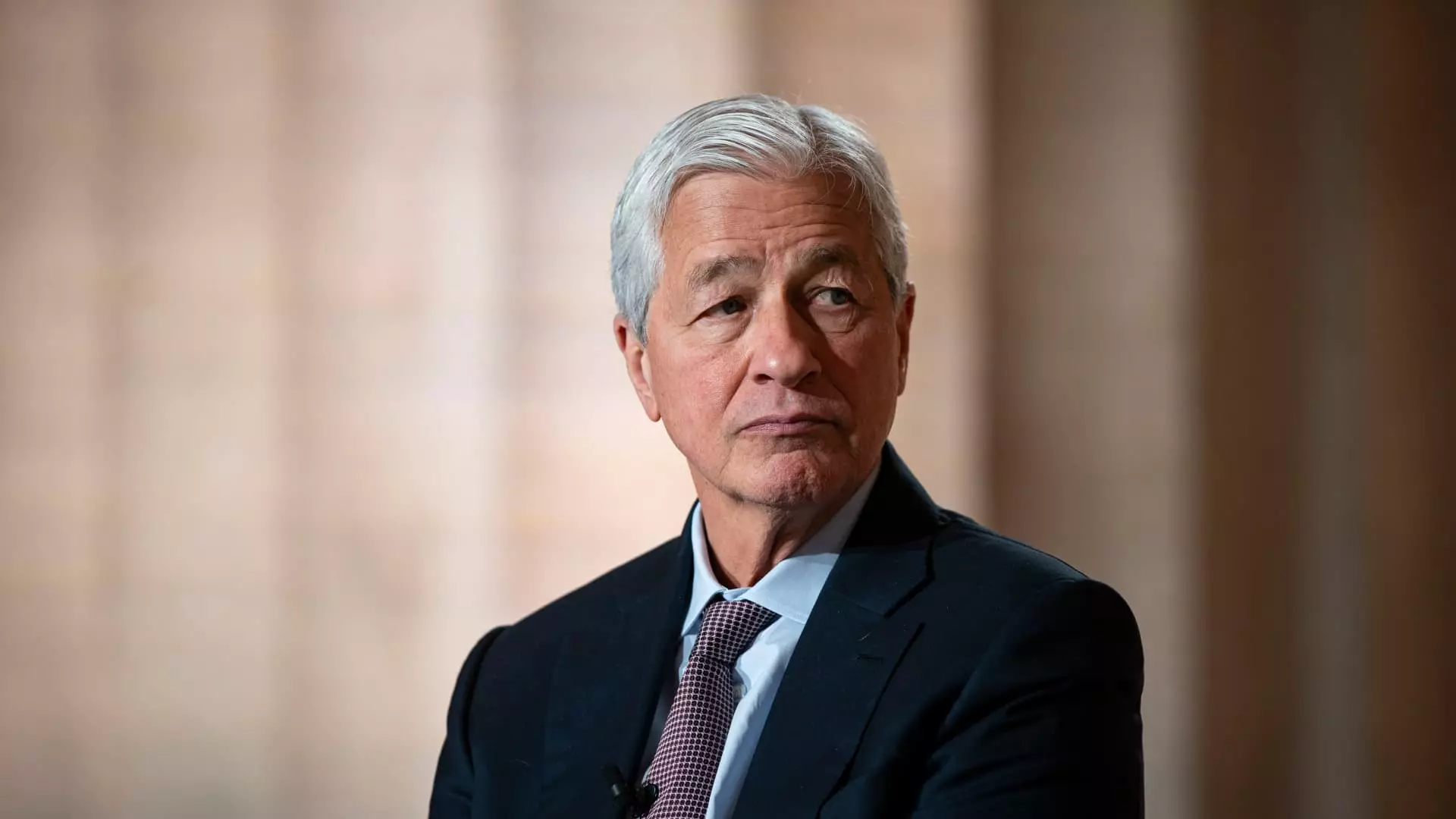In an unsettling revelation, Jamie Dimon, CEO of JPMorgan Chase, articulated a growing concern for the U.S. economy on national television, suggesting that a recession may loom in the near future. This assertion is not just a casual observation; it’s a crescendo of anxiety resonating through the financial corridors of America, ignited by the ongoing trade skirmish between the United States and China. Dimon highlighted an undeniable economic truth: the more uncertainty rattles the markets, the greater the chances of a downward spiral that can impact everyday Americans. When reassurance is scarce, even middle-class citizens monitoring their retirement accounts might feel the palpable weight of impending economic doom.
The Ripple Effects of Trade Wars
At the heart of Dimon’s warnings is a trade war that has spiraled beyond mere tariffs into a full-blown financial crisis. The ramifications of the tit-for-tat tariffs are not isolated to grand economic forecasts but filter down to the individual storylines of average American workers. When Dimon discusses a “2000-point decline” in the Dow Jones Industrial Average, it’s about more than numbers on a ticker; it’s about families who worry about their futures and businesses that could potentially shutter as the market vacillates. The decision by China to impose an 84% tariff on U.S. goods is not just a policy maneuver—it’s a blow to American consumers, who will feel the pinch not only at the cash register but deep within their livelihoods.
Fear and Consumer Sentiment
Dimon rightly points out that fear tends to compound itself within the markets. As stock values plunge, consumer sentiment takes a hit, which is a vicious cycle exacerbated by the uncertainty bred from retaliatory tariffs. When individuals feel as though they are losing wealth in their 401(k) plans, it prompts immediate behavioral changes. Instead of investing or spending, many will reel back, contributing further to economic stagnation. In a capitalist society, consumer spending is the lifeblood of the economy. If Dimon’s predictions hold any weight, the average consumer’s instinct to hunker down could be the very catalyst for an economic contraction.
Uncertainty Is the Killer
Dimon’s commentary underscores a critical point: markets often reflect the collective fears of their participants. As Wall Street grapples with the unpredictability of escalated trade tensions, Dimon notes a palpable shift in market behavior, where “uncertainty at the macro level” spills over into business decisions and ultimately consumer confidence. This layering of apprehension is debilitating; industries ranging from agriculture to technology are caught in a vortex of unpredictability, unsure of how U.S. policy or global tensions will dictate their fates. The economy doesn’t thrive on uncertainty; it withers under it.
To Tariff or Not to Tariff?
Interestingly, Dimon has previously advocated for tariffs, shedding light on the complicated and often contradictory nature of economic policy. His past comments suggesting that Americans should “get over it” regarding tariffs were once rooted in a perspective advocating for national security. Yet, as the situation unfolds, it’s becoming increasingly clear that blind adherence to protectionist measures may lead to unforeseen fallout for the broader economy. Dimon’s recent plea for reasoned negotiation serves as a warning that without strategic discussions, the clouds of economic depression may darken even further.
The Path Forward
Another important dimension to Dimon’s message is his call for the Senate to advance the confirmation of Michelle Bowman for the vice chair of supervision at the Federal Reserve. The role is significant, as Bowman would play a crucial part in stabilizing the banking and finance system during tumultuous economic times. Appointing competent leadership is key to navigating the unpredictable waters ahead. A proactive stance may help restore trust and encourage financial dialogue—all vital steps toward curbing the impending threats of recession Dimon has highlighted.
As we stand at a potential crossroads, striking a balance between protective economic measures and fostering trade partnerships may well define the trajectory of the U.S. economy. The stakes are high, and in times of uncertainty, where the fate of consumers hangs in the balance, decisive and rational action must prevail. The narrative being spun from financial boardrooms to ordinary households hinges on the ability to confront reality and act before it is too late.

